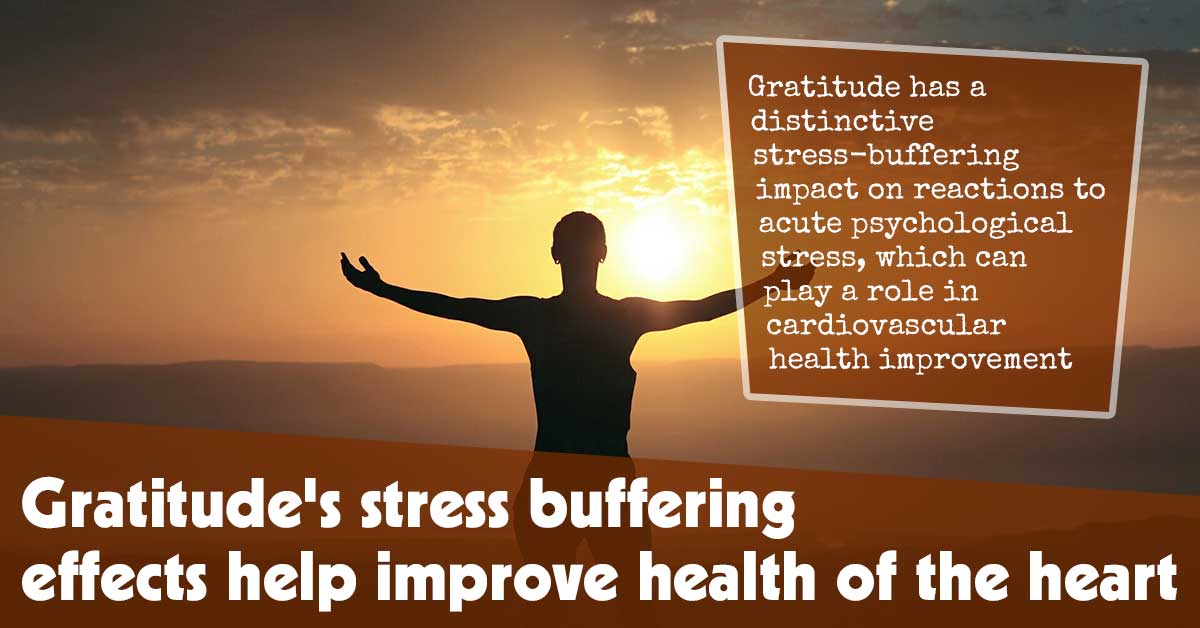Researchers conducted a study involving 68 individuals and revealed that gratitude has a distinctive stress-buffering impact on reactions to acute psychological stress as well as recovery, which can play a role in cardiovascular health improvement.1✅ JOURNAL REFERENCE DOI: 10.1016/j.ijpsycho.2022.11.013
Acknowledging that stress has an effect on people and impacts their health and well-being, such as causing hypertension and increasing coronary heart disease and cardiovascular morbidity, it’s necessary to understand our reactions towards stress to see if any factors can play important roles in stress-buffering.
The researchers suggest that, even though prior research indicates that the balance of gratitude and affect play important roles in stress-buffering, there is currently not much known regarding the effect of these factors on cardiovascular recovery from acute psychological stress.
That was the focus of this study which also set out to determine if affect-balance moderates the gratitude and cardiovascular reaction association with acute psychological stress.
The study included 44 female and 24 male undergraduate students between the ages of 18 and 57 years. This research made use of an experimental within-subjects method with lab tasks in which stress was evoked in the individuals participating in the study and then the response to cardiovascular reactivity and recovery was assessed.
The results revealed that the state of gratitude predicted lower responses of systolic blood pressure during the period of stress testing, meaning the state of gratitude has a distinctive stress-buffering impact on both reactions to acute psychological stress as well as recovery. It was also observed that affect balance increases the state gratitude effects.
These results have clinical significance since there are several low-cost gratitude treatments that can contribute to well-being. As an example, prior studies have demonstrated how cardiac patients who use gratitude journals have better cardiovascular outcomes compared to individuals who don’t.
Together with these results and those of earlier studies, gratitude may therefore constitute a useful treatment factor for cardiovascular health improvement.



